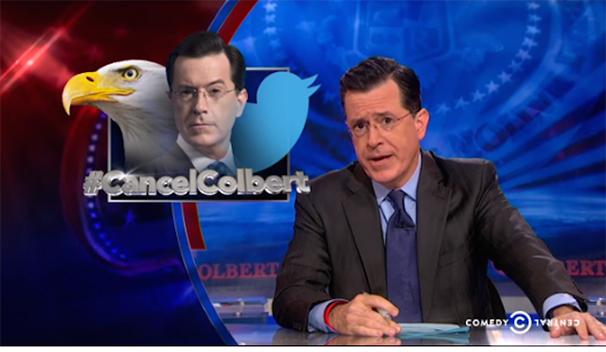
Stephen Colbert and his satiric late night show “The Colbert Report” came under fire on March 27, when the show’s official Twitter account tweeted a punch line out of context.
The tweet made the announcement that Colbert was launching the “Ching-Chong Ding-Dong Foundation for Sensitivity to Orientals or Whatever,” which was meant to lampoon the Washington Redskins’ Original Americans Foundation. However, with only 140 characters, the line was published out of context and sparked a firestorm of outrage on the Internet.
#CancelColbert is the brainchild of Suey Park, the 23-year-old activist who started
#NotYourAsianSidekick. In her latest campaign in hashtag activism, she sought to hold Colbert accountable for the racist comment. Just because “The Colbert Report” is a satiric show, Park argued, does not mean that Colbert can say whatever he wants.
The ensuing debate surrounding #CancelColbert had Park’s followers attacking Colbert while Colbert’s fans fired back.
However, the subject matter is so frivolous that it does not warrant a debate. Satire has always been a strong form of social critique. It is never caught up in its own message because it never takes itself seriously and therefore is not passing serious judgment.
Satire exists to push the boundaries and make the public think about what is right and wrong, pointing out the blatantly immoral. In 1729, Jonathan Swift wrote “A Modest Proposal,” a satirical article supporting cannibalism of Irish babies, but clearly he did not advocate such a practice.
Colbert plays a caricature of himself on television — a character created by him to satirize right-wing pundits. To take the show seriously is to completely miss the point.
As Colbert said in his first show after the #CancelColbert controversy, nobody was offended when he claimed Rosa Parks was overrated or when he praised Adolf Hitler for having some great ideas because people knew they were jokes. So why should the “Ching-Chong Ding-Dong Foundation” be any different?
With satire, the line between joke and truth becomes blurred, and some people will undoubtedly be offended. The recent controversy demonstrates that it is dangerous to play with fire.
Criticizing comedians for their sarcastic material distracts viewers from their real meaning — underneath the hilarity, Colbert has a message we should listen to. Instead of launching another Internet war when comedians speak, viewers should listen with an open mind.
A version of this article appeared in the Wednesday, April 9 print edition. Bob Teoh is entertainment editor. Email him at [email protected].





















































































































































